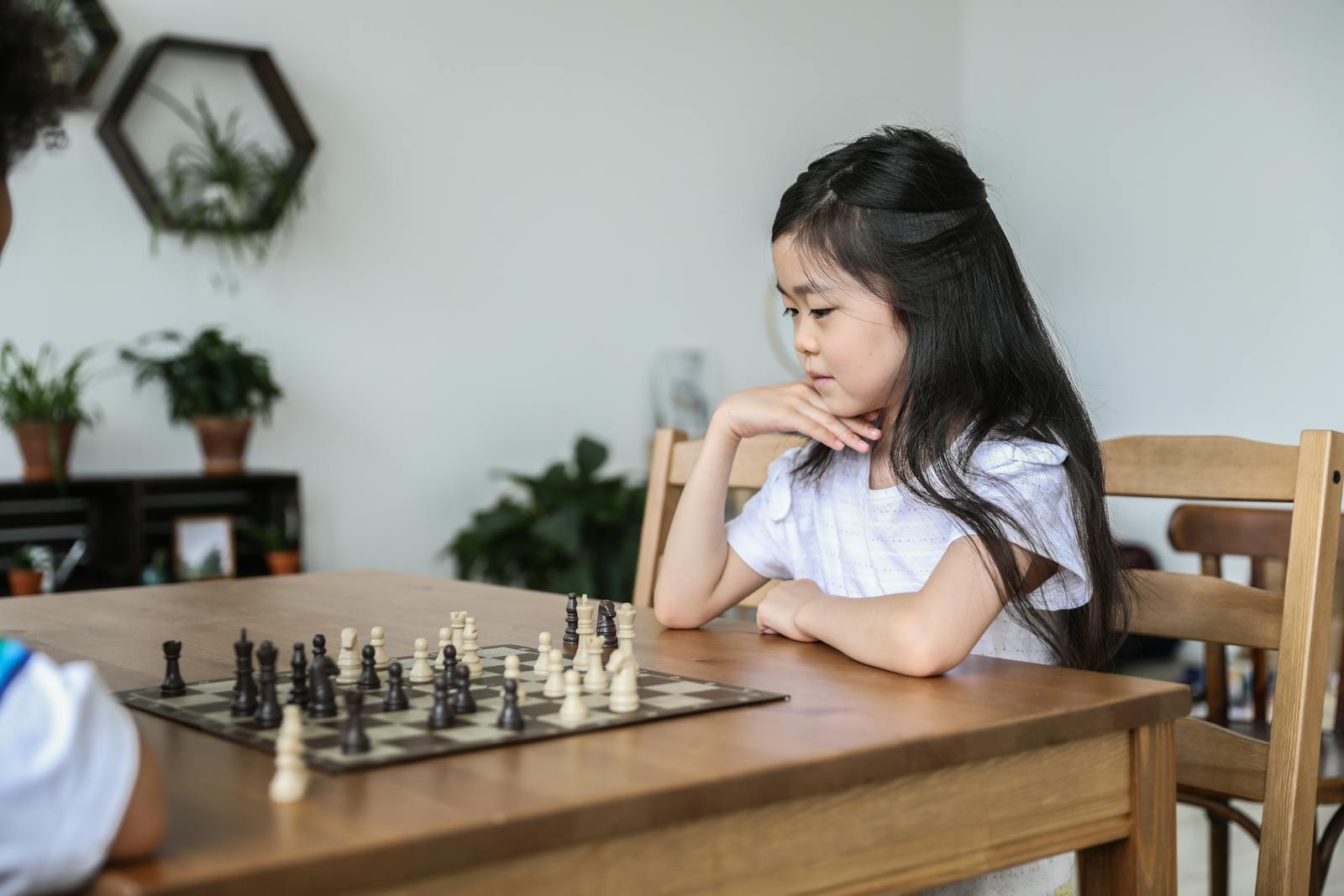
Are you looking for the best board games to teach social skills to your children? Board games have long been a cherished source of entertainment, but they offer more than just a good time. These age-old classics provide a valuable platform for children’s social and emotional development. They teach life skills, foster healthy relationships, and lay the foundation for emotional intelligence. So, Board games help children learn important social skills such as waiting, turn-taking, sharing, how to cope with losing, making conversation, problem-solving, compromising, collaborating, and being flexible.
Importance Of Board Games For Children:
Every Child often enjoys playing games as well as spending time with their parents and siblings. So, Combining these two pastimes can be exciting for a child. There are many benefits of board gaming for children such as enhancing social skills, boosting their self-esteem, developing fine motor skills and hand-eye coordination, teaching number, shape, color, and word recognition, and encouraging flexible thinking. Board games also help increase a person’s attention span and ability to focus on a task.
The importance of board games is paramount. Family time, fun, laughter, and learning, are some of the reasons why board games are so important in our children’s lives. It is game time. Board games are an entertaining way for the whole family to spend some time together; everyone can get involved, relax, and have a fantastic time. Get ready for hours of fun, competitions, and learning for the kids. To an adult’s mind, board games are a fun and entertaining way to pass the time, but what other functions do they fulfill when we consider our children’s growing and developing minds?
We all know that learning isn’t always enjoyable; this is especially true if you are a kid between the ages of 8 and 11. You would rather spend your day playing with friends, going on secret adventures, or enjoying all that the outdoors has to offer. Children are learning all the time and more often than not, they are unaware of it and the fact that they are strengthening and building their characters. Learning and educational activities don’t always have to be academic. Here is how using board games as a tool for education and development can help your child.
1. Building Social Bonds: Board games are inherently social. Whether it’s a game of Monopoly, Scrabble, or Chess, sitting down to play fosters bonding. Children learn to interact with peers, take turns, and practice good sportsmanship. These experiences are vital for building friendships and developing effective communication skills.
2. Cooperation and Teamwork: Many board games require teamwork, encouraging kids to collaborate with others. Games like “Pandemic” or “Cooperative Memory Games” teach the value of working together to achieve a common goal. Children experience the joy of shared success and the importance of cooperation.
3. Strategic Thinking: Strategy games, such as Risk or Settlers of Catan, challenge children to think critically and make decisions. These games hone problem-solving skills, encouraging kids to consider consequences and plan their moves. They also teach the art of patience and perseverance.
4. Learning to Win and Lose Gracefully: Board games introduce children to the concepts of winning and losing. Winning gracefully teaches humility while losing with composure is an exercise in resilience. These lessons in both victory and defeat are crucial for emotional growth.
5. Enhancing Empathy: Some board games, like “The Game of Life” or “The Game of Empathy,” are designed to teach empathy. These games put players in various life situations, helping children understand different perspectives and emotions. They promote a sense of compassion and empathy.
6. Conflict Resolution: Disagreements can arise during board games, but they also present opportunities for conflict resolution. Children learn to express their concerns, listen to others, and reach compromises. These skills are valuable not just in gaming but in life.
7. Stress Reduction: Board games offer a break from the pressures of daily life. They provide a space for children to unwind, laugh, and enjoy quality time with family and friends. This contributes to emotional well-being and stress reduction.
8. Creativity and Imagination: Many board games encourage creative thinking. Whether it’s crafting words in Scrabble or inventing stories in a role-playing game, children’s imaginations are sparked and their creativity is nurtured.
9. Sense of Achievement: Completing a board game, especially one with complex rules and strategies, gives children a sense of accomplishment. This boosts self-esteem and fosters a positive self-image.
Benefits of Board Games For Children
Board games have been a cherished form of entertainment for generations, captivating players of all ages. Beyond the sheer fun they provide, board games offer a wealth of benefits, making them a valuable addition to any home, school, or social gathering. Let’s explore the multitude of advantages that come with indulging in the world of board games.
1. Critical Thinking and Problem Solving: Board games are a playground for the mind. Whether it’s navigating the complexities of chess or strategizing in Settlers of Catan, they encourage players to think critically. These games present challenges that require analysis, decision-making, and problem-solving. Players must plan their moves, anticipate their opponents, and adapt their strategies. These mental exercises sharpen cognitive skills and nurture the ability to tackle complex problems in real life.
2. Social Interaction: In an era dominated by screens and digital communication, board games offer a refreshing opportunity for face-to-face social interaction. They bring people together around a table, where conversations and laughter flow freely. From the friendly banter during a game of Uno to the intense negotiations in a game of Diplomacy, board games foster meaningful connections and create lasting memories. They teach valuable social skills, including teamwork, communication, and good sportsmanship.
3. Family Bonding: Board games have the power to strengthen family bonds. They provide a break from the distractions of everyday life and offer a shared experience that brings family members of all ages together. Family game nights become cherished traditions, creating opportunities for parents and children to connect, share, and support one another. These moments of togetherness are where laughter is shared, relationships are deepened, and memories are created.
4. Educational Enrichment: Board games can be powerful tools for learning. There’s a wide array of educational games that teach subjects like math, language, history, and science. Games like Scrabble enhance vocabulary and word recognition. Geography-based games like Ticket to Ride introduce players to world geography. These games turn learning into an enjoyable adventure, helping players absorb new knowledge and skills effortlessly.
5. Stress Relief: Life can be stressful, and everyone needs an escape from time to time. Board games provide just that. They offer a diversion from daily pressures, allowing players to relax and unwind. The focused concentration required in games like Sudoku or Mahjong can be meditative, reducing stress and promoting mental well-being.
6. Creativity and Imagination: Many board games encourage creativity and imagination. Role-playing games like Dungeons & Dragons invite players to create characters, stories, and entire worlds. Even games as simple as Pictionary or Charades ignite the imagination as players draw, act, and guess. These experiences promote creative thinking, self-expression, and storytelling skills.
7. Time Management: Board games are structured experiences, often with a time limit for each game. This encourages players to manage their time effectively, make decisions within constraints, and maintain focus. It’s a valuable skill in a world filled with deadlines and time-sensitive tasks.
8. Achievement and Competition: Completing a board game is a mini-achievement in itself. Games offer a sense of accomplishment, boosting self-esteem and a positive self-image. Healthy competition in games teaches that both winning and losing are part of life. It encourages graceful winning and losing, along with the resilience to bounce back after defeat.
9. Parenting and Guidance: Board games are an excellent avenue for parents and caregivers to teach life lessons. They can instill values like patience, fairness, and empathy. In games, parents can model good sportsmanship, demonstrating that how we play is often more important than the outcome.
10. A Break from Screens: With the prevalence of screens in modern life, board games offer a welcome alternative. They provide a chance to disconnect from digital devices, reducing screen time and promoting healthier and more balanced leisure activities.
11. Accessibility and Inclusivity: Board games are remarkably inclusive. They can be enjoyed by people of all ages and abilities. They require no special skills or equipment, making them accessible to a wide range of players. Whether it’s a simple card game or a complex strategy game, there’s something for everyone.
12. Lifelong Learning: Board games are an opportunity for lifelong learning. Whether it’s mastering new games, exploring different strategies, or gaining knowledge from educational games, they promote continuous growth and intellectual curiosity.
How do games help social development?
Social-emotional skills are important for connecting with others, which are taught through games. Social-emotional learning helps children manage their emotions and build healthy relationships. By doing so, your child will gain a better understanding of himself, his feelings, and how his actions affect those around him. In addition to learning skills such as flexibility, problem-solving, and focus, games also help your child to develop other skills. As your child interacts with other people, these skills will also be helpful.
Board games give kids practice in social skills! Your child needs time to practice any skill he learns, whether it’s math, bouncing a ball, or playing the piano. Usually, the only time kids practice social skills is when they are directly in a social situation. And unless your child has siblings close in age, this usually only happens on playdates, at daycare, or in school.
But games set up a “mock” situation in which your child will experience a wide variety of emotions. Kids practice social skills by playing games together, but playing together also gives you the opportunity to teach while playing. Practicing social skills at home will set your child up for a lifetime of success.
What board games teach social skills?
You don’t need to invest in fancy board gaming social skills games to teach social skills. As a social worker, I had many social skills books and social skills games. But they aren’t necessary, are often hard to find, and are costly.
Plus, kids often groan and roll their eyes when you drag out Friendship Bingo. All you need is good old-fashioned board games. The games you played growing up are perfect! Here is a list of my favorite games for teaching social skills.
Note, that the prices are subject to change. The price listed is the price at the time of this update.
What skills do board games develop for babies?
- The benefits of board games are many, but an important benefit is that they can develop in children, depending on the specifics of each game, skills such as:
- patience – children have to wait their turn;
- understanding the concept of ‘personal space’ – children need to stay in their own area while waiting their turn;
- basic mathematical skills such as number recognition, counting, and arithmetic;
- literacy skills, such as identifying letters, words, reading, and vocabulary;
- deductive thinking;
- problem-solving;
- visual perception skills;
- reasoning;
- strategic planning;
- social skills;
- fine motor development – holding and moving game pieces on the board;
- gross motor development – some games require physical activity, such as Twister.
Why should children play board games with our little ones?
Games are one of the most engaging and meaningful ways to practice social-emotional skills with children and young adults. While there are many fancy online games and activities, sometimes you can’t beat an old board game. Board games are simple, predictable, and easy to pull out whenever you have some extra time during class. Here are a few reasons to get your kids excited about playing board games and, why not, playing with them:
1. Bring people closer together and strengthen relationships by fostering player interplay.
2. Bring a state of happiness good cheer, relaxation, and relaxation, whether you are involved in the game or simply observing.
3. Develops thinking skills, helps the brain function better, and reduces the risk of various diseases such as Alzheimer’s.
4. Helps us in developing emotional intelligence, and managing emotions (Although challenging, children learn to lose without getting upset).
5. Helps us to be physically present at the moment, taking a break from the blue light of mobile phones and computers.
6. Reduce stress and anxiety because a side effect of board games is laughter.
7. Increase creativity, skill, and patience.
8. Teaches us to plan and organize the next actions.
9. They make us more confident, stimulating the ability to speak more easily in public.
10. Develop self-esteem.
11. Stimulates concentration and attention span.
12. Teach the child to respect certain rules without deviating from them.
13. Develop planning, persistence, strategy, and critical thinking skills.
14. Helps us spend quality family time, helping to build lasting memories.
15. Teaches us about team spirit.
16. Board games can teach children new concepts and information, such as financial literacy, the value of money, and how to manage it properly.
17. Helps the child to think a few steps ahead of the opponent and to sense their moves in order to achieve their own goals.
How to Use Board Games for Children?
- Gather up your baby’s favorite board games. I have a big list of them below if you need some ideas!
- Plan some classroom board game time. You can introduce the idea as a way to build SEL skills, but you can also weave this in as a break or reward.
- As students play, remind them of the skills they are working on for each game! This helps build their self-awareness and metacognition as they are learning and practicing those SEL skills.
- Give time to play!
- Afterward, encourage kids to review what SEL skills they used in each game.
FAQ:
- How do Board Games Enhance Social Skills?
Board games help children learn important social skills such as waiting, turn-taking, sharing, how to cope with losing, making conversation, problem-solving, compromising, collaborating, and being flexible. These skills are important in school-aged children so that they can appropriately respond to social situations both inside and outside of the home. Games like Candyland and Chutes and Ladders teach children that flexibility is crucial because luck can change very quickly. Children quickly learn that these games are not necessarily about skill acquisition but more about how one may cope with change in a playful environment.
2. Why board games are important for children?
In addition to pulling children away from screens, board games engage a range of social skills including cooperation, turn-taking, and other prosocial behaviors.
3. What is a board game for baby?
Board games are a specific type of tabletop game that often include pieces or counters that are moved on a board according to a certain set of rules. For example, many board games require players to roll a die, which depends largely on chance, whereas others are more skill-based or focused on turn-taking.
4. What is the value of board games?
Board games will teach your child about numbers, letters, shapes, and colors, they will also teach your child about all important life lessons such as taking turns, fair play, time management, and logical thinking.
Conclusion: In conclusion, board games are more than just an enjoyable pastime; they’re a source of countless benefits. They stimulate the mind, nurture social bonds, and offer a platform for learning and growth. So, next time you gather around the game board, remember that you’re not just playing; you’re experiencing a world of benefits that extend far beyond the game itself.



































